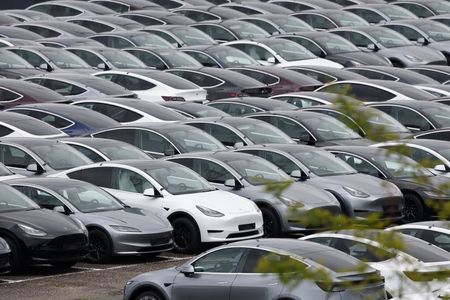FRANKFURT (Reuters) – Germany’s central bank on Monday backed raising a cap on the government’s deficit at a time when public debt is low and there is a need for investment in infrastructure and defence.
This so called debt brake, which limits public deficits to 0.35% of gross domestic product, was the key economic topic of Germany’s election campaign and the country’s likely next chancellor, Friedrich Merz, has talked about reforming it.
The Bundesbank, traditionally a bastion of conservative economic thinking, also saw scope for adapting the debt brake “to changing conditions”, it said in its monthly report.
“Binding fiscal rules such as the debt brake make a very important contribution to ensuring solid state finances,” it said. “In principle, however, it is entirely justifiable to adapt the debt brake’s borrowing limit to changing conditions when the public debt ratio is low.”
The Frankfurt-based central bank, which does not have a say in fiscal matters but is deeply respected within the country, cautioned that “higher (deficit) ceilings” must be binding and “in line with solid state finances”.
“And even then, it remains essential to review priorities and use financial resources more effectively in order to better align fiscal policy with the challenges,” it added.
It said there was a need for “action” in public infrastructure and defence spending but the tax burden and spending ratios were already relatively high.
Europe’s largest economy has shrunk for two straight years and appears increasingly in need of an overhaul if it is to compete with China and the United States.
The Bundesbank said the German economy may eke out some modest growth in the three months to March but it remains mired in stagnation as threats of U.S. tariffs dampen global economic activity.
(Reporting By Francesco Canepa; Editing by Hugh Lawson)









